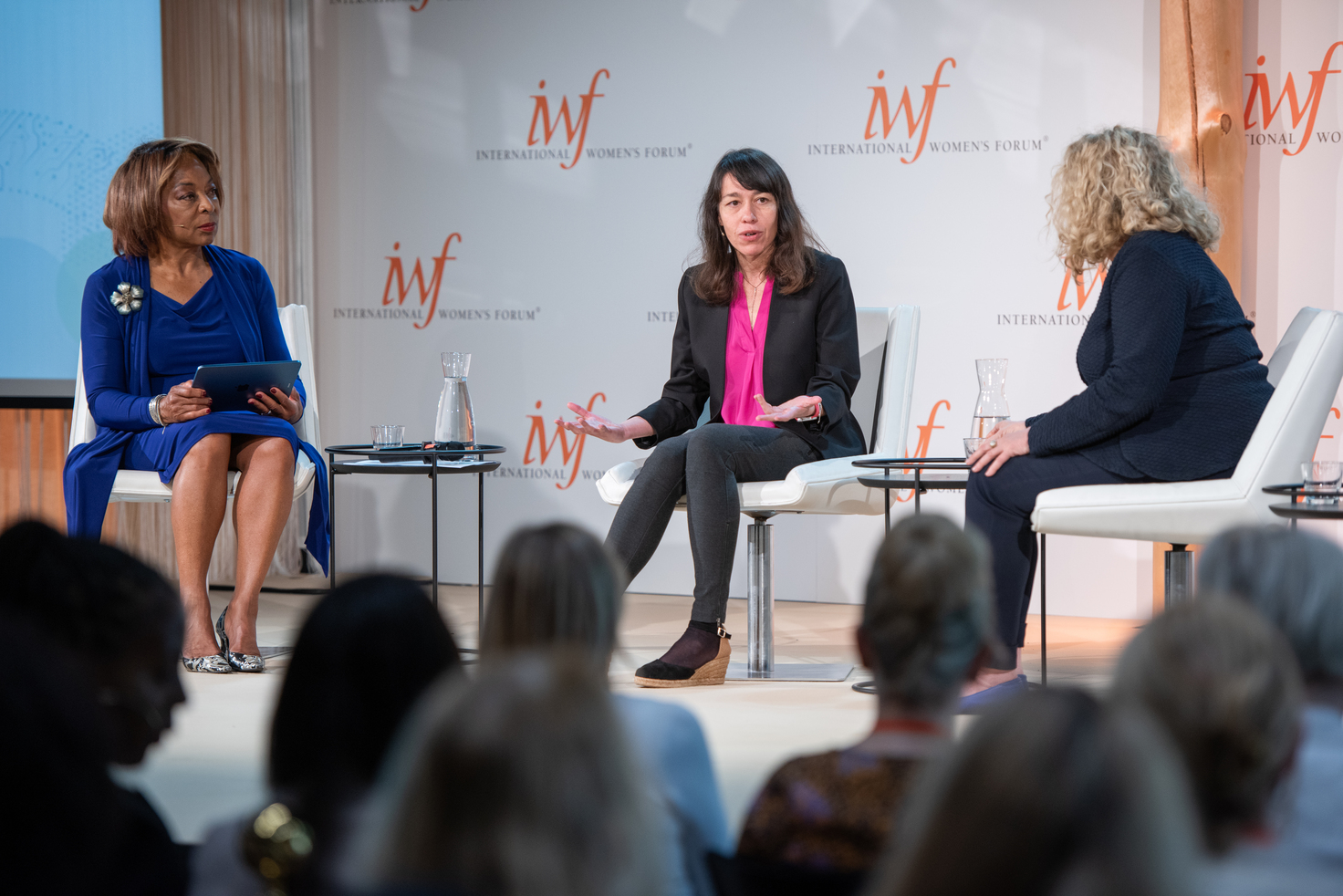Guest Post By Michael Sarpong Bruce
IQM Quantum Computers Communications Specialist
Despite being heavily male dominated in comparison to other technology fields, quantum technology is expected to transform society and more women need to be attracted to boost diversity and inclusion, according to Dr. Ines de Vega, Head of Quantum Innovation at IQM Quantum Computers.
Speaking on a panel “An elegantly modelled future: quantum computing” at the International Women’s Forum 2023 Cornerstone Conference in Finland’s capital Helsinki, Dr. de Vega said that “I believe that because quantum is relatively new field with a great expansion potential, we have amazing chances to, this time, do it better and promote and encourage more women to follow the quantum career.”
Together with Dr. Mina Teicher, Professor of Mathematics and Neuroscience at Bar Ilan University and Director of Advancing Women in Mathematics across the Americas at the University of Miami, on the panel, Dr. de Vega touched upon her own experiences in breaking the barrier in the discussion.

She explained that in other fields, the methods, the style, the emphasis, and the culture had already been determined decades ago in a way that was biased and somewhat affected by the society at that time.
However, in a company like IQM, one of the things she enjoyed the most when she arrived was that everything was new and malleable to change, mould, and create, adding that “this new field allows to generate a friendly atmosphere that encourages diversity and women to join, to speak up, and to develop a strong career.”
According to a report by the London School of Economics and Political Science, fewer than two percent of applicants for quantum jobs are female.
Explaining areas where quantum computing could speed up innovation to the over 500 women from 32 countries at the conference on the theme “Thinking Differently”, Dr. Teicher said quantum computing will help solve the big challenges of the 21st century, such as medicine, climate change, etc. “It will also speed up the development of brain-machine interfaces, which could be for the good or for the bad.”
While Dr. de Vega remarked that there are several fields where quantum can make a great contribution, citing an example of drug development when it is required to have a highly accurate description of the electronic properties of the drug molecules.
“By simulating molecular structures and interactions, quantum computers can provide insights into the effectiveness and safety of potential drug compounds, enabling more efficient drug discovery and optimisation processes,” she said.
Addressing the question of what advantages early adopters of quantum technology will have, Dr. Teicher pointed out that quantum will widen the digital gap for everyone. “Companies that don’t adapt will disappear. For countries, it is very costly. It will be the duty of developed countries to make quantum computers available to all. Communication is like food; it is essential to everyone.”
Dr. de Vega believed that early adopters of quantum technology could potentially gain several advantages, including a competitive edge, intellectual property, and innovation.
She emphasised that being an early adopter of quantum technology can provide organisations with a competitive edge in their respective industries. “Quantum computing has the potential to revolutionise various sectors, such as finance, logistics, materials science, and healthcare.
“By leveraging quantum algorithms and capabilities, early adopters can tackle complex problems, optimise processes, and develop innovative solutions that were previously infeasible with classical computing. This can lead to improved efficiency, cost savings, and differentiation from competitors.”
She continued that organisations that invest in quantum technology early on can develop intellectual property and gain a significant advantage in terms of innovation.
Quantum computing is a rapidly evolving field, and pioneering work in quantum algorithms, software, and hardware can lead to valuable patents and proprietary knowledge. “This intellectual property can create barriers to entry for competitors and position early adopters as leaders in the quantum technology landscape, she added.
Touching on the key differences between quantum computing and classical computing, Dr. Teicher said the advantage of quantum computing over classical computing is not the issue; the main point is the speed. “The speed of quantum computing will change a lot of aspects of computing. It analyses data and makes knowledgeable decisions in an instant.”
Dr. de Vega, on the other hand, said that in classical computing, computations are performed sequentially, one instruction at a time. In quantum computing, qubits can exist in a superposition of states, meaning they can be in multiple states simultaneously. “This property enables quantum computers to perform many computations in parallel, offering the potential for exponential speedup for certain algorithms compared to classical computers.”
She mentioned that quantum entanglement is a phenomenon where two or more qubits become correlated in such a way that the state of one qubit cannot be described independently of the other qubits’ states.
“Entanglement allows quantum computers to create complex relationships between qubits, leading to powerful computational effects. It enables quantum computers to perform certain computations more efficiently than classical computers.”
She concluded that, though there is a need for international regulations or standards, the ethical and legal issues around quantum technology are not yet ready. “One should consider at this point that quantum computation is in its infancy. This means that we still cannot imagine the impact that it may have on society as well as its ramifications.
“Most of the international regulations and ethical issues will have to be sorted out progressively as the first applications where quantum computers outperform classical computers emerge.”
For more market insights, check out our latest quantum computing news here.














